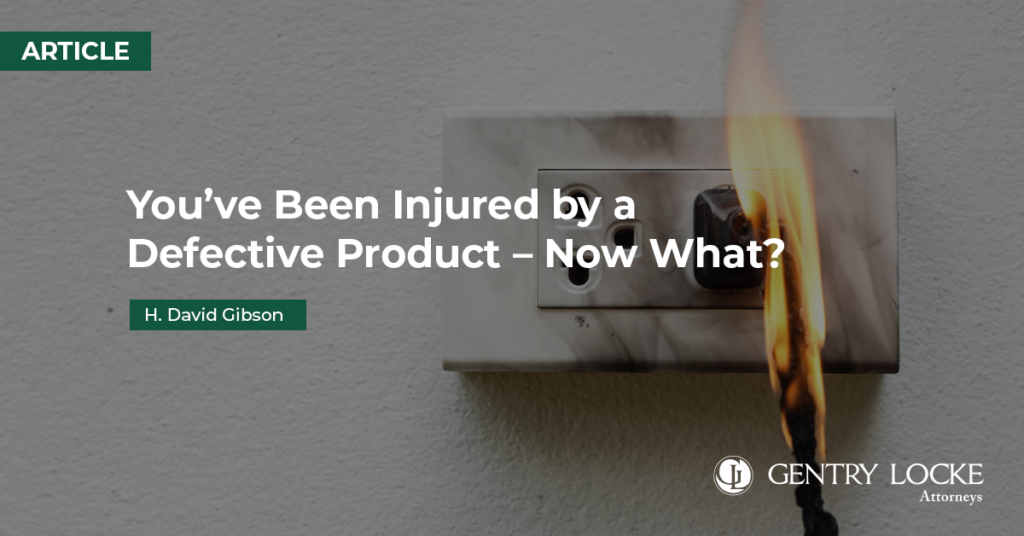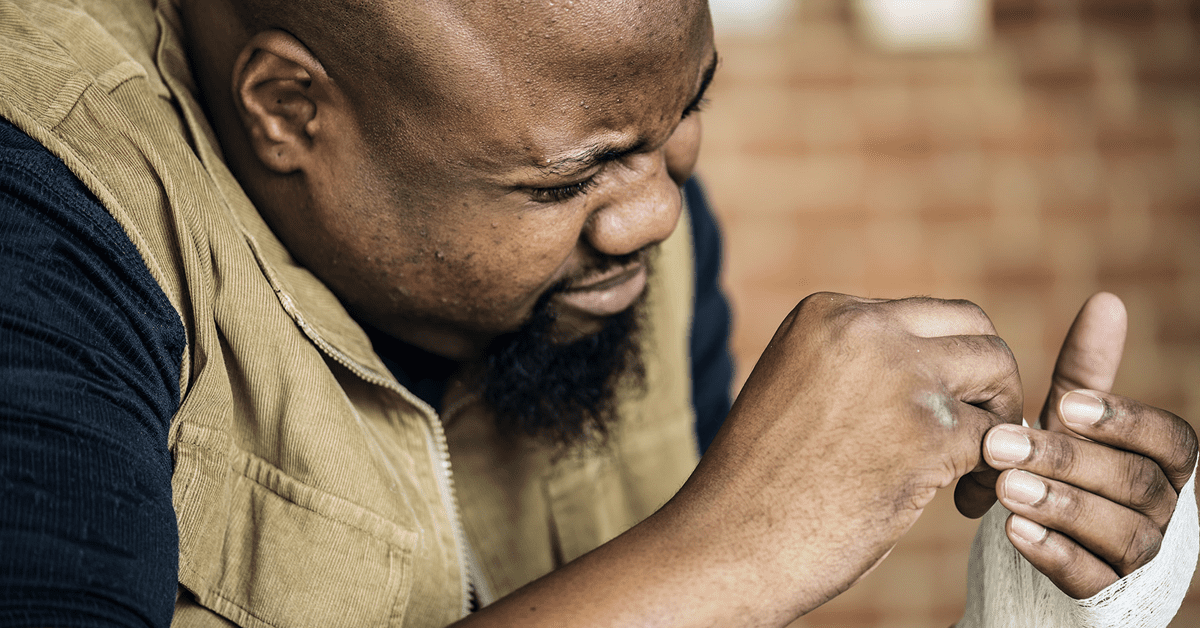You’ve Been Injured by a Defective Product – Now What?

Introduction
If you have been injured or a family member killed by a defective product, you may have what is known as a “products liability” case and you should contact a Virginia personal injury attorney/Virginia wrongful death attorney as soon as possible. You must file a products liability lawsuit within the statute of limitations which is usually two years of the date of the incident.
Types of Product Liability Cases
Products liability cases apply to a wide range of items in the marketplace. These include household items, industrial equipment (typically a work-related injury), motor vehicles, all terrain vehicles, drugs and food, just to name a few. Products liability cases determine the legal responsibility arising for personal injury or death caused by a defective product sold or leased in the marketplace. The defect in the product may be a design defect or a manufacturing defect.
There is not a uniform nationwide body of law relating to products liability cases. Rather, the states have developed their own versions of products liability law. Accordingly, contacting a Virginia products liability lawyer may be crucial to a successful prosecution of your case.
Who Might be at Fault in a Products Liability Case
Potential defendants in a products liability case include any party or combination of parties in the chain of commerce from manufacturers to wholesalers to retailers and potentially others. Your lawyer will determine which parties should be sued in your products liability case.
Elements to a Products Liability Case
Generally speaking in Virginia, there are four elements to a products liability case:
(1) A product which was sold or leased;
(2) A design or manufacturing defect in the product which was sold or leased;
(3) Personal injury or death; and
(4) The defect in the product was a substantial cause of the injury or death.
Recovery in a products liability case is dependent upon the person who has been harmed proving that a product, as designed and manufactured, is unreasonably dangerous for its reasonably foreseeable use. Typically, products liability causes of action include negligent design or manufacture, negligent failure to warn and breach of warranty claims (implied warranty of merchantability, implied warranty of fitness for a particular purpose, express warranty, etc.).
Preserving Evidence
Products liability cases tend to be very technical and preserving evidence from the outset relating to the defect in the product is critical. Unavailability of the relevant product, whether it was discarded, destroyed or altered in any way either intentionally or unintentionally, can create significant obstacles to pursuing a products liability claim.
It is of utmost importance that the relevant product be preserved as soon as possible. If the product is currently in your control, your attorney will take possession of the product and store it in such a manner that it is preserved for future use as evidence in the case.
However, if you are not in possession of the defective product, your attorney will send “preservation letters” (a letter stating that it would be improper to destroy or alter the product) to whoever maintains custody and control over the relevant product. Such a preservation letter creates a legal obligation for the custodian to safeguard the product for future use as evidence in the case.
Experts and Investigation
One of the first things your lawyer will do is to retain an expert or experts on the product that caused the injury or death. The expert(s) will assist you and your lawyer in establishing that the product was defective and that the defect was a substantial cause of the injury or death.
Your lawyer will also collect all medical records and medical bills relating to the incident. Your attorney may also meet with your healthcare providers to better understand the exact nature of the injuries/prognosis or death.

Damages in Product Liability Cases
In a products liability personal injury case, the Plaintiff may recover damages for past and future medical expenses, past and future pain and suffering, emotional distress, embarrassment, humiliation, inconvenience, loss of past and future earning capacity, and permanent disability or disfigurement.
In a products liability wrongful death case the beneficiaries (usually close family members) of the decedent are entitled to recover damages. The beneficiaries are entitled to be compensated for any sorrow, mental anguish, and loss of solace. Solace may include society, companionship, comfort, guidance and advice of the decedent. The beneficiaries are entitled to recover any reasonably expected loss of income of the decedent from which they may have benefited. Beneficiaries may also recover for loss of services, protection, care, and assistance from the decedent. Finally, the beneficiaries may be entitled to recover any expenses for the care, treatment and hospitalization of the decedent concerning the injury resulting in the death as well as reasonable funeral expenses.
Fighting Corporations and Insurance Companies
Products liability cases are very expensive to prosecute and most individuals do not have the funds necessary to litigate against large corporate defendants and/or insurance companies. Because of this, Gentry Locke typically covers all expenses associated with the products liability litigation. Generally, Gentry Locke is then reimbursed for these expenses if a favorable recovery is obtained.
Conclusion
Bottom line, if you have been injured, or a loved one killed, by what you believe to be a defective product, you should contact a Virginia lawyer as soon as possible to protect your rights and interests.





